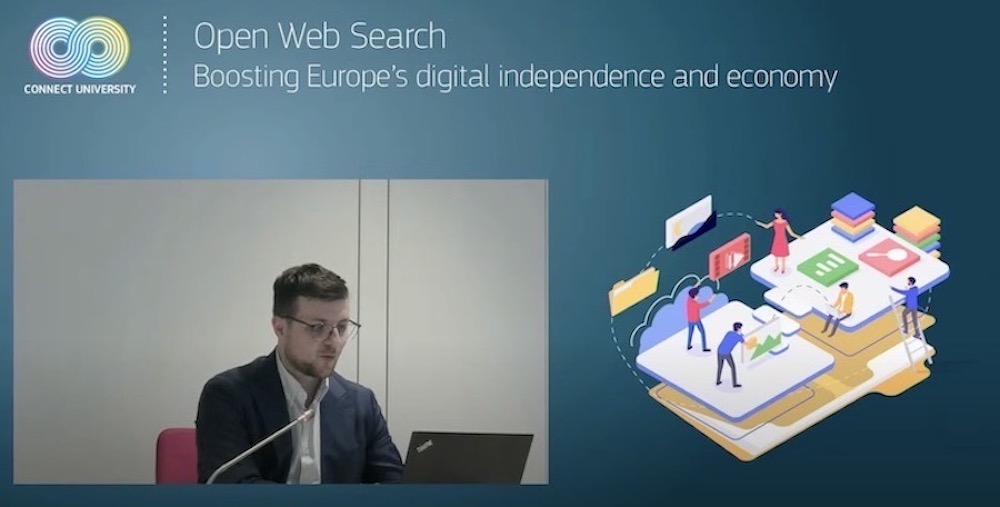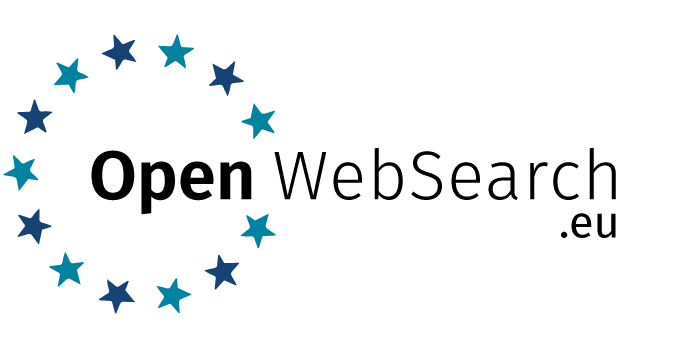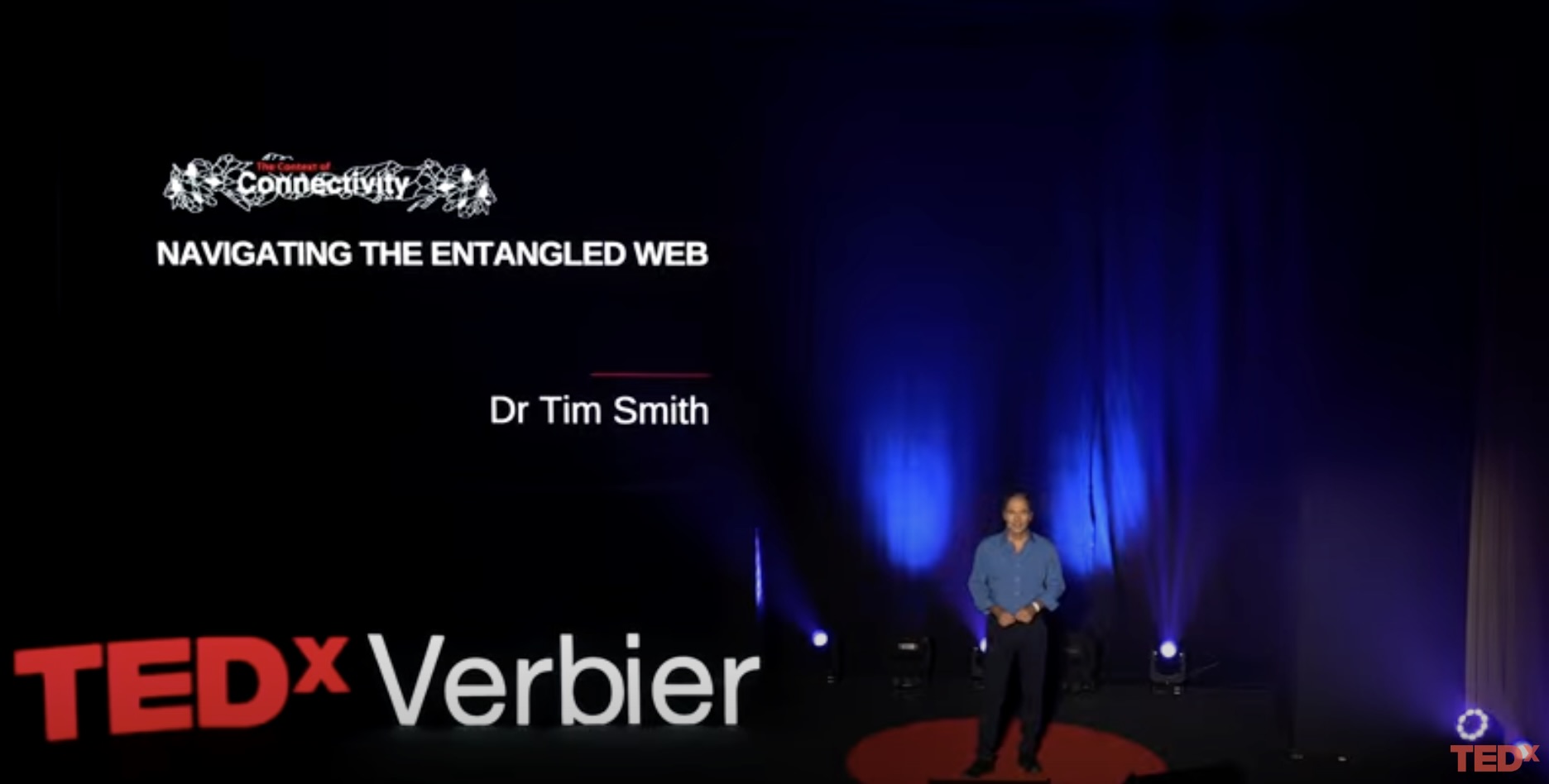“Missing link: Open web index to make Europe independent in searching” | California18
“With a market share of over 90 percent, Google is regularly the number one search engine in Europe. Since 2004, googling has been officially listed as a verb in the dictionary and stands for searching or researching on the Internet with the application of the subsidiary of the US umbrella company Alphabet. As the gateway for a large number of Europeans and citizens worldwide, Google not only opens up information, but also helps determine their view of the Internet and the things depicted on it.”…
Read the full blog article at California18:
https://california18.com/missing-link-open-web-index-to-make-europe-independent-in-searching/9087352023/
“Missing Link: Open web index to make Europe independent in searching” | heise online
“With a publicly viewable source code, I can learn and, more importantly, verify exactly what the search engine is storing about me” – Wolfgang Sander-Beuermann from Suma e.V., a project partner of openwebsearch.eu, and many other voices of the OpenWebSearch.EU’s project resp. of the Open Search Community have their say at heise online.
Find the article at heise online (German):
https://www.heise.de/hintergrund/Missing-Link-Offener-Web-Index-soll-Europa-bei-der-Suche-unabhaengig-machen-7466867.html?seite=all
“Starnbergers against Google power: How the Open Search Foundation wants to change the internet” | Merkur
In the German daily “Merkur”, Christine Plote and Dr Stefan Voigt, board members of the Open Search Foundation, one of openwebsearch.eu’s project partners, talk about Open Search and the EU project openwebsearch.eu. Read more
Video – Connect University Online Session: “Open Web Search. Boosting Europe’s digital independence and economy”
In a Connect University webinar, Dr. Stefan Voigt (Open Search Foundation and German Aerospace Center/DLR), Prof. Dr. Michael Granitzer (University of Passau and project leader openwebsearch.eu) and Isabell Claus (founder thinkers.ai), moderated by Christine Plote (Open Search Foundation), shed light on the topic of open search and the background and potential of the openwebsearch.eu project.
Furthermore they talked about the motivation and concepts of open web search for Europe, the technical set-up and roadmap of the OpenWebSearch.EU’s project. They also highlighted the possible impact and commercial dimension of an Open Search Ecosystem for Europe’s digital markets.

TED-Talk “Navigating the Entangled Web”: Dr. Tim Smith of CERN explains the benefits of Open Web Search
Dr. Tim Smith, head of Collaboration and Information Services at CERN, one of OpenWebSearch.EU’s project partners, gives an overview of Internet search and its downsides in his TED Talk at Tedxverbier.ch. In his talk, he uses examples from physics to illustrate the necessity of an open web index.
Among other things, he discusses CERN’s flagship, the LEC (Large Electron-Positron Collider), and uses this measuring instrument to illustrate how quickly false reports spread on the internet. We are pleased that he, as an employee of CERN, highlights the advantages and benefits of our open web search project in his lecture.
His powerful message: “The world needs to act collectively now as a connected community to solve the catastrophic challenges that humankind is facing.”
“Another attempt to create a European Google: the Czech Republic joins OpenWebSearch ” | Lupa.cz
“In Europe, more plans are afoot to create a local web search engine that would weaken the dominant Google. In September, the OpenWebSearch project was set in motion, involving fourteen European research and supercomputing centres. Among them is the Czech national supercomputing centre IT4Innovations in Ostrava. However, Germany holds the majority role in the project.”
Read the full article “Další pokus o vytvoření evropského Googlu: do OpenWebSearch se zapojuje i Česko” at Lupa.cz:
https://www.lupa.cz/clanky/dalsi-pokus-o-vytvoreni-evropskeho-googlu-do-openwebsearch-se-zapojuje-i-cesko/
“Europe builds its own internet search engine” | OI Canadian
OI Canadian | 21 September 2022
“The OpenWebSearch.EU project is working on a European alternative to Google in the field of online search To foster an open and human-centric search engine market”
Read the full article at OI Canadian:
https://oicanadian.com/the-openwebsearch-eu-project-is-working-on-a-european-alternative-to-google-in-the-field-of-online-search-to-foster-an-open-and-human-centric-search-engine-market/
OpenWebSearch.EU has officially kicked-off | Media Release
OpenWebSearch.EU has kicked-off with a consortium meeting in Berlin. 46 participants got together in a hybrid meeting format to exchange ideas and make plans for the successful execution of the project. The meeting was hosted by DLR-PT in a new building in Berlin-Südkreuz.
The opening session was kicked off by greetings from Dieter Kranzmüller (BADW-LRZ), Uwe Heitmann from DLR-PT, and Jorge Gasos and Stergios Tsiafoulis from DG CONNETC. The warm welcome of the guests gave an energetic basis for the following interactive gathering.
“The kick-off with its interactive sessions are of great value for project progress. The in-person meeting format was a big help for knowledge exchange, requirement gathering, and expectation sharing. It was great to see all participants working so very motivated and actively contributing to lively discussions and break-out sessions” says Dr. Megi Sharikadze, Lead of the LRZ Research Coordination and Support Team.
“Europe builds its own internet search engine” | Tiroler Tageszeitung
Tiroler Tageszeitung | 28 August 2022
“The European answer to Google and Co. should be more open and at the same time better protect privacy. Austrian researchers are also involved.
Google, Microsoft Bing, Baidu, Yandex – the search for information on the internet is dominated by only a few private providers. With the support of the EU’s Horizon Europe funding programme, a European alternative to the market-dominating providers is to be developed. 14 research and computing centres in Europe are working on the large-scale project – from Austria, the Institute of Interactive Systems and Data Science at TU Graz is involved, the university announced.”
Read the full article at Tiroler Tageszeitung (German):
https://www.tt.com/artikel/30830068/europa-bastelt-sich-seine-eigene-internet-suchmaschine


Get in touch with the OpenWebSearch.eu community
Funded by the
European Union
The project OpenWebSearch.EU has received funding from the European Union's Horizon research and innovation programme under grant agreement No 101070014.


